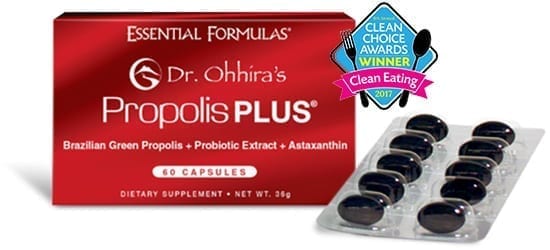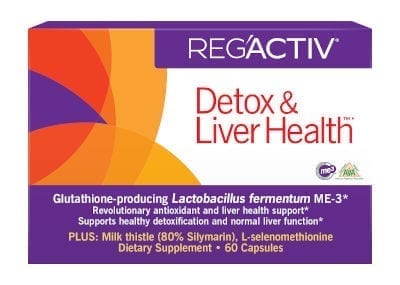
Probiotic Skincare Myths Debunked: The Truth Behind the Trends
Ever since scientists identified bacteria, they were considered the disease-causing “bad guys” we had to beat. Researchers created antibiotics to kill off those nasty little bugs. In the last few years, however, the medical community has recognized that not all bacteria are harmful and that killing all of them can leave the body out of balance and vulnerable.
As with many health discoveries, the marketing machine grabbed this idea and ran with it. Now manufacturers are adding probiotics to everything from baby cereal to skincare products. Do probiotics in skincare products really work? There are many myths about their effectiveness. Let’s talk about them.
What Are Probiotics?
Bacteria in our bodies don’t just cause illness; certain types confer health, keeping harmful bacteria under control. Probiotics are the “good guys.” They naturally occur everywhere in our bodies, inside and out. Here are a few of the benefits of healthy internal bacteria:
- Keeping hormones in balance
- Supporting detoxification
- Generating certain vitamins
- Maintaining a healthy immune system
- Helping with digestion and nutrient absorption
The human digestive tract contains trillions of bacteria. Research indicates that good bacteria need to balance harmful bacteria by at least 85% good bacteria to 15% harmful bacteria. About 70% of the immune system cells in the human body are in the digestive tract, so keeping healthy gut bacteria is essential to supporting the immune system and to overall health.
How Probiotics Work
Probiotics taken orally first reach the stomach. The supplement must survive the strong acids in the stomach to reach the small and large intestines. Once in the intestines, the body’s temperature releases the bacteria from the capsule to begin growing and forming colonies.
As good bacteria colonize the intestines, they create an environment friendly only to beneficial microorganisms. The probiotics crowd out harmful bacteria, supporting immune system cells and aiding digestion.
The Role of Probiotics in Skin
Probiotics aid your skin in two ways:
Topically
Beneficial organisms live on your skin, and choosing skincare products that do not kill off or disrupt these important probiotics but rather ideally aid these bacteria is critical.
Internally
Skin health begins inside. Probiotics help us digest our food — and critically aid in the absorption of key minerals, vitamins and nutrients, but they also affect our weight, sleep, mood, cravings, and sense of well-being. All of these factors affect our skin clarity. When gut bacteria are out of balance, intestinal pH becomes too alkaline, an environment friendly to pathogenic bacteria. Probiotics introduce healthy bacteria that adjust the pH levels to a more beneficial level in the body.
Probiotics Skincare Myths
Now, to the heart of the matter. Misconceptions, once started, can build, especially in this age where a single offhand comment on the internet can snowball until everyone believes something false. Let’s examine some of the most common misconceptions about probiotics and skincare.
Probiotics Support Acne Reduction
True. It may seem strange that an unhealthy intestinal tract could impact the skin, but it is now well-known that gut dysbiosis, acne, psoriasis, and eczema go hand in hand. If you think about it, the gut and skin are similar; both protect us from harmful bacteria.
Medical science is coming into sync with ancient wisdom, understanding that everything in the body is ultimately connected. If the gut is out of balance, it can let harmful bacteria through the intestinal wall. Those harmful bacteria can affect the body’s detoxification and immune system, immune system, including the skin, causing acne and other chronic skin conditions.
Probiotics Can Help Support Dermatitis Treatment
True. As in the case of acne, skin and gut dysbiosis are present in those with dermatitis. Balancing the body’s microbiome inside and out can relieve conditions like dermatitis, acne, psoriasis, eczema, and other skin concerns.
Probiotic Microbes are Harmful
False. Extended use has proven that probiotic use in healthy people is safe. Those with severe illnesses and compromised immune systems should use caution and work with a qualified medical practitioner.
Issues with probiotics have occurred in some cases because certain products contained bacteria strains not listed on the label. Make sure you trust the maker of your probiotic supplement. A probiotic should be quality-guaranteed and have the following characteristics:
- No artificial chemicals, preservatives, coloring, flavoring, or animal byproducts
- Free of soil-based organisms
- All-natural
- Non-GMO and vegetarian
- Hypoallergenic
All Probiotic Products Work the Same
False. Many factors figure into an effective probiotic, and not every supplement on the market has those elements. When you’re considering a probiotic, here are a few questions to ask:
- Can the probiotics survive passage through the stomach acid to reach the intestines?
- Does the product on the shelf still contain the potency it originally had?
- Does the supplement have a prebiotic and postbiotic system in place?
- Most importantly, does it create results?
Yogurt is the Best Probiotic
False. Yogurt doesn’t have all the bacteria strains the body needs to overcome harmful bacteria. It also doesn’t have the food source for the good bacteria that creates the prebiotics and postbiotics that enable the beneficial bacteria to grow and balance the body.
The bacterial strains in yogurt also have to pass through strong stomach acids to reach the intestines, which can aid the body, and many do not survive. Plus, so many yogurt products are very high in sugar, which puts additional strain on the digestive system and feeds harmful bacteria and yeast.
Using Probiotics Is a Substitute for a Good Diet
False. No skincare product can compensate for a poor diet. Health begins with healthy food, regular exercise, and sufficient sleep. With these building blocks in place, a probiotic skincare routine helps you maintain overall skin health.
Multiple Strains are Better than One
True. Different strains of bacteria offer additional benefits in the digestive tract. Introducing large numbers of a single helpful organism could further unbalance the GI tract and potentially put the immune system on alert.
Final Thoughts
Our skin has naturally-occurring good bacteria that live on our skin and help keep our dermal cells healthy. Skincare products should support this delicate micro-ecology. Unfortunately, many products on the market do just the opposite.
Dr. Ohhira’s skincare products, based on the latest scientific research, support, enhance, and promote these beneficial bacteria. They balance, moisturize and protect the skin. Together with a healthy diet, sufficient sleep, and a healthy gut biome, they give your skin all the nutrients it needs to establish and maintain a healthy glow throughout your life.
Sources Used
- https://essentialformulas.com/rapid-microbiome-restoration/
- https://www.ncbi.nlm.nih.gov/pmc/articles/PMC6678709/
- https://essentialformulas.com/protect-and-balance-skin-microbiome/
- https://www.nccih.nih.gov/health/probiotics-what-you-need-to-know
- https://www.healthline.com/health/probiotics-and-digestive-health
- https://essentialformulas.com/dr-ohhira-difference/
- https://essentialformulas.com/protect-and-balance-skin-microbiome/
- https://essentialformulas.com/products/dr-ohhiras-skin-care/





